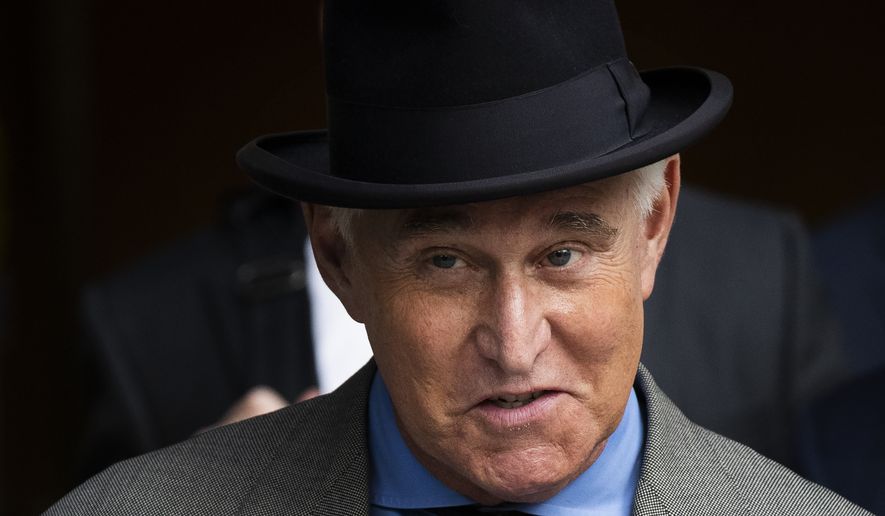Roger Stone’s conduct during the course of his criminal proceedings came into play when his judge weighed his bid to push back the start of his prison sentence by two more months.
In a five-page opinion unsealed Monday, U.S. District Judge Amy Berman Jackson indicated Stone’s actions before and during his trial were among the reasons not to grant his request.
Stone, President Trump’s former adviser, had asked to postpone the date he is supposed to surrender to authorities from June 30 to Sept. 3 because of the coronavirus pandemic.
Judge Jackson ruled last week against granting the 60-day extension sought by Stone but gave him another 14 days to turn himself in. Stone’s new surrender date is now July 14.
In the newly unsealed opinion explaining her decision, Judge Jackson said that Stone’s lawyers correctly noted that extensions like the one they sought have been granted to defendants in at least two other cases also heard in U.S. District Court for the District of Columbia. However, she added, “neither of those defendants was convicted of threatening anyone, and there is no indication that either failed to abide by conditions of release at any time.
“By contrast, Mr. Stone was convicted of threatening a witness, and throughout the course of these criminal proceedings, the Court has been forced to address his repeated attempts to intimidate, and to stoke potentially violent sentiment against an array of participants in the case, including individuals involved in the investigation, the jurors and the Court,” wrote Judge Jackson, an appointee of former President Barack Obama.
Stone, 67, was convicted last year on counts of obstruction, witness tampering and perjury brought as a result of the government’s investigation into the 2016 presidential race. He was sentenced in February to 40 months imprisonment, and he has remained free on bond since then while challenging his conviction and sentence in federal appeals court in D.C.
Prior to his trial starting, Stone’s account on Instagram posted an image that showed Judge Jackson’s face next to small crosshairs. Judge Jackson subsequently barred Stone from posting on social media or speaking publicly about his case until it concluded. More than four months since that gag-order expired, Stone has since been vocally critical of the case against him on Instagram and during media appearances, where he has regularly made his argument for an appeal or presidential pardon based on allegations of misconduct on the part of the Department of Justice officials who charged him and the foreperson of the jury that found him guilty.
Lawyers for Stone had asked to delay his surrender date due to the ongoing novel coronavirus pandemic. Judge Jackson countered that, as of the date of her opinion being issued, the prison where Stone is set to start his sentence has zero known cases of COVID-19, the contagious and potentially disease the coronavirus causes.
“There is a considerable body of public information concerning the undeniable risk of contamination in prison settings in general, and it is essential to treat this information seriously. However, the defendant does not point to anything other than his doctor’s ’[r]easonabl[e] speculation’ to support the conclusion that he is particularly vulnerable to infection or complications from infection for reasons other than his age,” she wrote elsewhere in the ruling.
• Andrew Blake can be reached at ablake@washingtontimes.com.




Please read our comment policy before commenting.